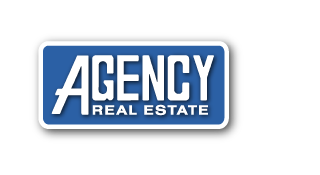#1 What's the Right Home For You?
The search for a new home will go more smoothly if you do some advance assessment and decision making. Examine your desires, needs, hopes and dreams. Think about what you want, what you need and what concessions you are willing to make. Determine what type of home will work for your lifestyle and what your parameters are. Define what features are nonnegotiable and what is open to compromise.
Creating a prioritized list will help guide your search and balance what is available on the market with what you want. A good place to begin is weighing how the following factors impact you and will influence your decision.
Location. The location of your new home is the foremost contributing factor in its pricing. A small house in a desirable, high-demand area may list for more than a larger home with more features in a less sought after area. Convenience to schools, town centers, retail areas and recreation, for example, may affect the listing price.
Suburbs, urban or rural. What are the walking and driving distances to schools, restaurants, parks, shopping and the town center? Determine what type of work commute you will have and how much time is involved. Assess traffic patterns and congestion and how it fits into your desired lifestyle.
Schools. Perhaps you are looking to live within a specific school district or close to your childcare provider. Though you may not have children that will use the area schools, the district's reputation could impact the resale value of your home down the road.
Type of home. Does a single family, condo, townhome or cooperative best suit your needs?
Style. Perhaps you have a specific style in mind. Is it a single story, multistory or split level? Do you imagine yourself in a Victorian, Tudor or contemporary style home? How about an older home with character as compared to something brand new and sparkling? What type of exterior do you prefer—brick, stone, wood or something completely different?
Rooms. The number of bedrooms and bathrooms, square footage and bonus rooms is important to consider.
Garage. Do you want an attached, detached, one- or two-car or larger garage? Perhaps you want space for a workshop.
Special amenities. A home that has features that are sought after in your area will dictate a higher selling price as well as the resale price down the road. Determine what upgrades are important to you: fireplace, pool, spa, expanded master suite, library, lower level finished basement or gourmet kitchen to name a few.
Condition. Do you want a fixer upper, turnkey, an older or brand new home?
Neighborhood. Perhaps you want to live out in the country with homes that are far apart or you prefer a neighborhood with young children or older families.
Yard. Do you prefer landscaping, decks, patios and perennial flower gardens, something small requiring little work or no yard at all?
Think about your future and how long you plan to live in the home. If having children is years away or yours are grown up, a good school district may not be a priority. Perhaps an older parent with growing health concerns will need a room in your home as well as your care someday. Driving around your desired neighborhood in advance will alert you to potential deal breakers such as barking dogs, traffic patterns and neighbors.
Now that you have set your priorities and you have a good idea of what type of home fits your lifestyle, it is time to contact your real estate agent for advice and to set a plan to start your search for the perfect home. An experienced, educated agent with extensive market knowledge will successfully guide you through the maze of available options and the specific paperwork needed that will lead to your home purchase. Possessing a wealth of knowledge, your agent is well prepared to assist you from beginning to end, helping you feel at ease throughout the sometimes complicated buying process. Your agent can provide you with specific, detailed information about schools, shopping centers and recreation.

